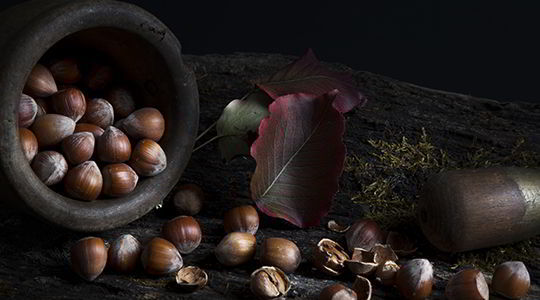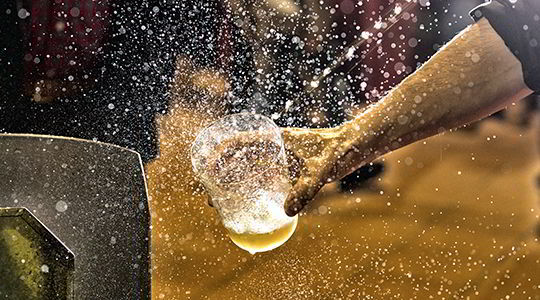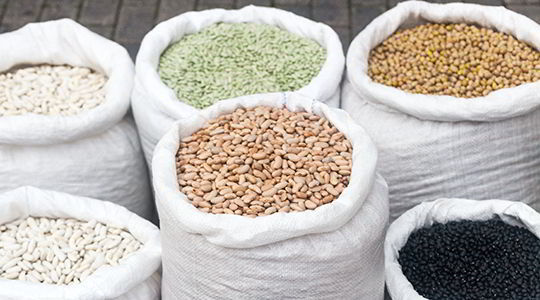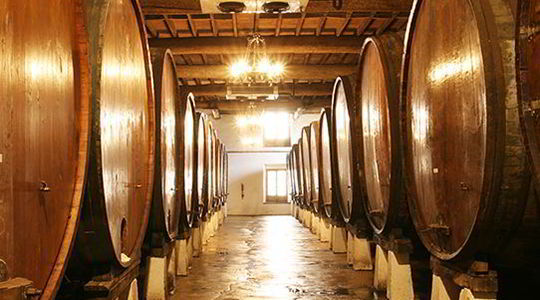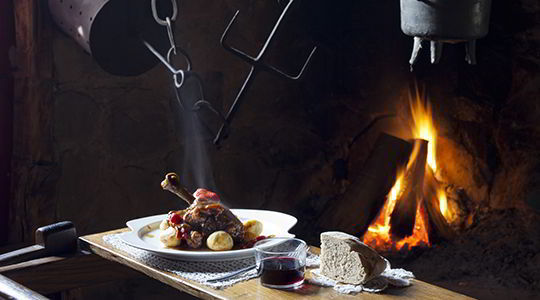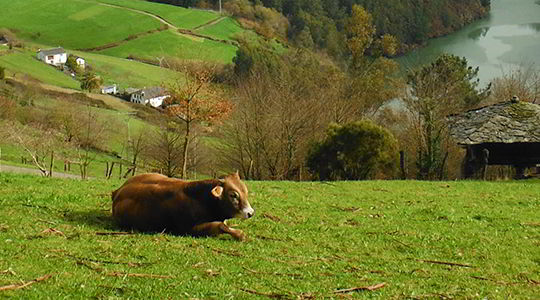Asturian vocabulary shows Asturian identity and gastronomic richness
- Ablana: hazelnut.
- Aguiyolo: razor shell in Western Asturias.
- Alezna: oricio, sea urchin.
- Amasueles: clams.
- Andarica: velvet crab.
- Andoya: marinated, cold cured pork loin.
- Arcín: oricio, sea urchin.
- Arbeyos: peas.
- Berces: vegetable that is used in stew.
- Bocarte: fresh anchovy.
- Boroña/Borona: bread made with corn flour, eaten a lot in the past.
- Boroñu/Boronu: dough cooked in blood, onion, fat and flour typical in the East.
- Bugre: lobster.
- Campanu: first salmon fished in an Asturian river each fishing season.
- Culete, culín: an amount of cider that is poured into a cider glass and which should be drunk all at once.
- Emberzáu: mince made with onion, corn flour and pig fat and blood, wrapped in cabbage leaves and cooked.
- Fabes: Asturian beans.
- Fayuela/Frisuelu:sweet crêpes made with flour, egg, milk and sugar.
- Figos: figs.
- Fréxoles: flat green beans.
- Furagaña: small sea bass.
- Gochu: pig.
- Hombrín: bocarte, fresh anchovy.
- Llacón: shoulder of pork.
- Llagar: Press or cellar where cider is made. The owner is called a "llagareru".
- Llambión: someone who likes sweet things, a lover of pastries, cakes and desserts.
- Llámpara: limpet.
- Muergu: razor shells.
- Ñocla: brown crab.
- Oriciu/Oricios: sea urchin/sea urchins.
- Panoya: corn on the cob.
- Parrochas: small sardines.
- Pitu caleya: rooster or hen that is raised in the village freely without any animal feed.
- Pixín: monkfish.
- Roballiza: sea bass.
- Picatosta, torrexa: French toast.
- Venáu: deer.
- Ventrisca: long-finned tuna belly.
- Verdines: small beans with a greenish hue.
- Virigüetu: cockle.
- Xarda: mackerel.
- Xata: heifer.
